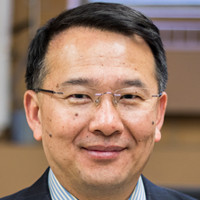Daolun Chen

Professor
Faculty of Engineering and Architectural Science
Department of Mechanical, Industrial and Mechatronics Engineering
Toronto, Ontario
dchen@torontomu.ca
Office:
(416) 979-5000 ext. 6487
Expert In
Bio/Research
Daolun Chen is like the United Nations of engineering researchers. Educated in China, Austria and Canada, and with ongoing academic collaborations in these countries, as well as in Brazil, India, Japan and the U.S., Chen sees tremendous value in forming international bonds. First, multiple perspe...
Click to Expand >>
Click to Expand >>
Bio/Research
Daolun Chen is like the United Nations of engineering researchers. Educated in China, Austria and Canada, and with ongoing academic collaborations in these countries, as well as in Brazil, India, Japan and the U.S., Chen sees tremendous value in forming international bonds. First, multiple perspectives yield the best insights. Second, his work on lightweight advanced materials has the potential to reduce carbon emissions, which is a global issue.
What’s the connection to the environment? Lighter high-strength materials used in the construction of cars and airplanes, for example, make it possible to burn less fuel for the same distances. Reducing fuel consumption reduces both costs and pollution.
But lighter materials such as magnesium alloys present new challenges when it comes to corrosion and welding. Chen studies how well alloys perform when mixed or coated with additional alloying elements. “This is a hot area in engineering. Big manufacturing companies are interested in using lighter materials. And everyone is interested in addressing climate change. Our goal is greater reliability, safety and environmental responsibility. Those are worldwide concerns.”
Click to Shrink <<
What’s the connection to the environment? Lighter high-strength materials used in the construction of cars and airplanes, for example, make it possible to burn less fuel for the same distances. Reducing fuel consumption reduces both costs and pollution.
But lighter materials such as magnesium alloys present new challenges when it comes to corrosion and welding. Chen studies how well alloys perform when mixed or coated with additional alloying elements. “This is a hot area in engineering. Big manufacturing companies are interested in using lighter materials. And everyone is interested in addressing climate change. Our goal is greater reliability, safety and environmental responsibility. Those are worldwide concerns.”
Click to Shrink <<